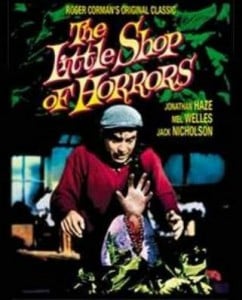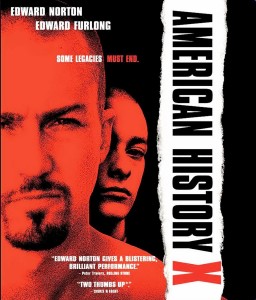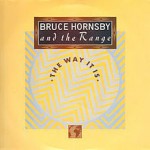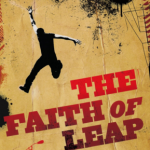The news that Donald Trump is the presumptive nominee for president by the Republican Party often appears to be a comedy of errors, yet the reality is more like an American tragedy. Two films come to mind, The 1960’s B film The Little Shop of Horrors. Then and with more seriousness, the great 1998 film American History X.
 The Little Shop of Horrors is a 1960 cult classic directed by Roger Corman. It tells the story of a less than competent florist’s assistant who cultivates a plant that feeds on human flesh and blood. The plant grows each time it is fed and becomes vocal, in a creepy tone saying “Feed me, feed me.” The florist’s assistant is reduced to indentured servant status, with his only purpose being to procure the next meal for the ravenous plant. The point being, a ravenous plant continues to grow because it is continually being fed.The systemic shock being experienced by the RNC at the prospect of a Donald Trump presidency is not unlike this farcical horror.
The Little Shop of Horrors is a 1960 cult classic directed by Roger Corman. It tells the story of a less than competent florist’s assistant who cultivates a plant that feeds on human flesh and blood. The plant grows each time it is fed and becomes vocal, in a creepy tone saying “Feed me, feed me.” The florist’s assistant is reduced to indentured servant status, with his only purpose being to procure the next meal for the ravenous plant. The point being, a ravenous plant continues to grow because it is continually being fed.The systemic shock being experienced by the RNC at the prospect of a Donald Trump presidency is not unlike this farcical horror.
The reason for Trump’s engorgement is the steady diet of coded racism, thinly veiled hate and legislated fear that has been passed off as a political platform that has been ongoing steadily for nearly eight years since the day Barack Obama was sworn in as President. Everything from the ‘Birther’ movement to the ‘Tea Party,’ to the resurgence of racist voter suppression laws cloaked as ‘preventing voting fraud,’ to the exponential growth in the number of hate groups in the America a direct result of this open season for racism feeding frenzy.
 American History X is a film that gets at the fallout of how hate can come home to roost. This haunting 1998 film written by David McKenna and directed by Tony Cane, stars Edward Norton and Edward Furlong whose lives are forever changed because of being swept up into the American Neo-Nazi movement. Edward Norton portrays Derek Vinyard, older brother to Danny Vinyard played by Edward Furlong. The Vinyards are a lower middle-class white family in suburban Los Angeles. Their area becomes a recruitment zone for channeling the angst of suburban white youth into white supremacist gang membership. Norton’s character is swept up in this fertile ground for hatred while in high school and becomes the charismatic leader of and hero to a Venice-based white youth supremacist gang. He then ends up brutally killing two black of three black men who broke into his car.
American History X is a film that gets at the fallout of how hate can come home to roost. This haunting 1998 film written by David McKenna and directed by Tony Cane, stars Edward Norton and Edward Furlong whose lives are forever changed because of being swept up into the American Neo-Nazi movement. Edward Norton portrays Derek Vinyard, older brother to Danny Vinyard played by Edward Furlong. The Vinyards are a lower middle-class white family in suburban Los Angeles. Their area becomes a recruitment zone for channeling the angst of suburban white youth into white supremacist gang membership. Norton’s character is swept up in this fertile ground for hatred while in high school and becomes the charismatic leader of and hero to a Venice-based white youth supremacist gang. He then ends up brutally killing two black of three black men who broke into his car.
Derek is convicted of the killings and is sent to prison. While incarcerated, he seeks protection from other white supremacist prisoners, but his intelligence begins to come to the forefront as the begins to see the corrosive and bankrupted nature of racially stratified life in prison. Derek forms an unlikely friendship with Lamont, a black man he is forced to work beside in the prison laundry. Over time, they end up learning one another’s stories and Derek begins to realize how light a sentence he received for two killings (three years) in comparison to six-year sentence Lamont received for stealing a TV in the LA riots. The white supremacists prisoners eventually turn on Derek in a very brutal way. This brutality along with his own observations and his relationship with Lamont results in his conversion away from white supremacism. After he is released from prison, he goes home to chart a new path in his life that is non-racist. The tragedy comes in the fact the prior racial sins sowed by the older brother are now being reaped by the younger. Derek does his best to talk his younger brother back from the course he set him on, but in the end, it was too late.
The situation for the Republican Party is moving from The Little Shop of Horrors towards American History X, from a three-ring farce to an American tragedy.
There have been some great articles written about the Trump phenomenon, with the outlook of Christian faith, in particular, Christina Cleveland’s recent article. In her article, Ms, Cleveland outlines how fear of the loss of centuries of ill-gotten power and privilege is coming home to roost for the white male dominated power structure in American. There is no real humor in this. These are self-inflicted wounds hundreds of years in the making and a real American tragedy.
However, from the perspective of faith, hope can arise from ashes, and new life is ever possible, but a fundamental change of course and direction (in faith speak, a conversion) is in order.
To make headway, the boisterous, narcissistic, ravenous plant needs to be starved from the roots, rather than continually being fed. The race-bating, coded rhetoric must to end, and veiled racist policies need to be named, challenged and intentionally dismantled. This is a long and winding road that requires many steps along with some wrong turns along the way, yet this, coupled with intentional actions taken, when strung together, can move things forward. In similar fashion, calls for racial justice in the church.
Realization and calls for change at the highest levels can embolden. Intentional actions in local places (cities and states and local church judicatories) can fuel a broad-based racial justice, truth, reconciliation, and ‘repair’-ation movement on the ground, igniting a chain reaction, inspiring others to watch, learn and take similar steps.
It will be harder for a big ship political party to make this kind of turn in a timely fashion. Yet every big ship has dinghies. It may well be up to individuals to begin the process by voting with their feet and from the cruise ship deck downward, into open water. Better to jump ship and rough it in the dinghy, than to blindly follow Trump like lemmings into the sea.
A movement towards racial justice, truth, reparation, and reconciliation is needed across party lines for the healing of our nation and the full and well-being of us all. ‘Dixiecrats,’ ‘Reagan Dems’ and the Democratic Party establishment have also made major missteps with racial implications.
All people of goodwill can jump from whatever ship they are on into these uncharted waters, and take needed action within whatever political party, church, mosque, synagogue, skeptic, or atheist group they are part of. Such bold action might be less like party, group and denominational disloyalty and more like a movement towards starving the ravenous plant and away from American History X, into a new, truth telling, reconciling and repairing era, where ‘America the great,’ might find more basis in reality, beyond the a-historical boast.











